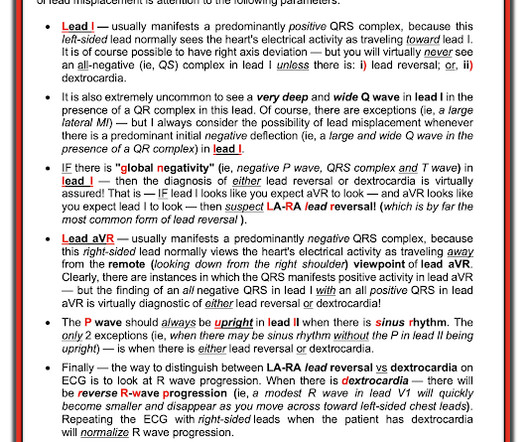Brain Trauma Guidelines for Emergency Medicine
ACEP Now
OCTOBER 3, 2023
This guideline revision is particularly timely as EMS systems have shown their abilities to dramatically improve survival and neurologic outcome after cardiac arrest, STEMI, acute stroke, and other time-sensitive conditions. Hypotensive patients should be treated with blood products and/or isotonic fluids in the prehospital setting.













Let's personalize your content